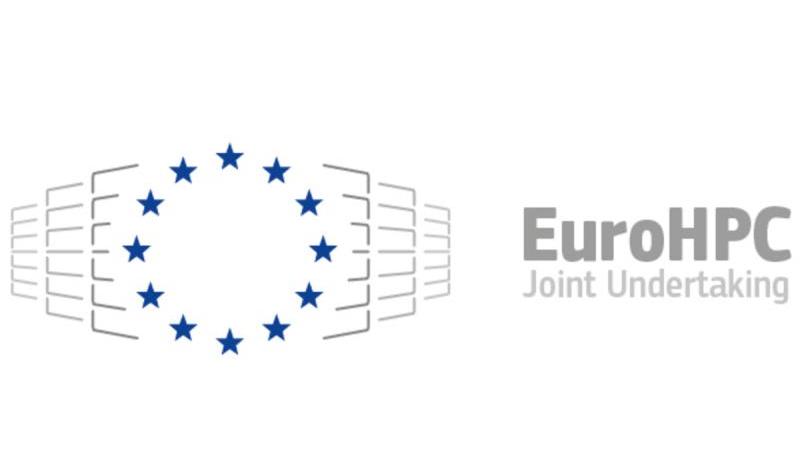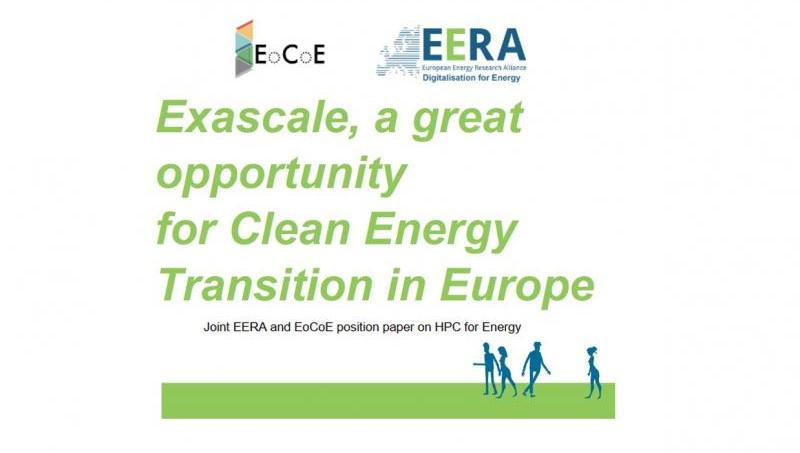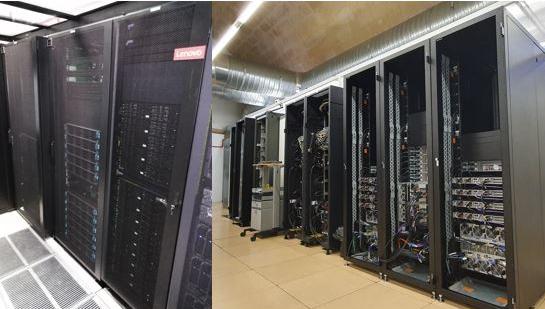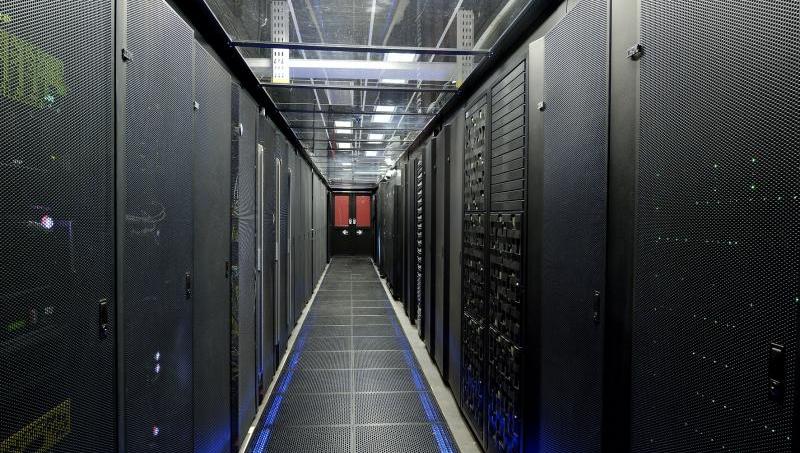It seems that HPC has reached a top position in the European political agenda. Is this right? Does European Commission really believe in HPC as a competitive driver for Europe?
There is a worldwide understanding on the importance of mastering High Performance Computing (HPC) for national sovereignty and economic competitiveness. The extraction of meaningful knowledge from the exponentially increasing amount of data available depends on the convergence of key technologies such as HPC, Artificial Intelligence (AI), Big Data and High Performance Data Analytics, and Cloud. HPC technologies and infrastructures are vital for Europe's innovation capabilities in science, industry and society because HPC is the âengineâ that powers this convergence, enabling novel applications and opportunities in the global digital economy.
Let me first bring some elements to show that the top position that HPC enjoys today in national and EU political agendas does not come out of the blue. At EU level, it started in February 2012, with the Commission communication "High-Performance Computing: Europe's place in a global race". This Communication already highlighted the strategic nature of HPC as a crucial asset for the EU's innovation capacity, and called on Member States, industry and the scientific communities, to join efforts with the Commission to ensure European leadership in the supply and use of HPC systems and services by 2020.
The political support continued with the announcement by President Juncker of the European ambition to become one of the top 3 world leaders in HPC. This was supported in the Cloud initiative adopted in 2016 which became a key element of the Digital Single Market (DSM) Strategy, proposing concrete actions to develop a complete HPC ecosystem in Europe. These actions included the acquisition of leadership-class supercomputers, the development of our own independent HPC system supply, and the deployment of services to industry and SMEs.
Finally, the EuroHPC Joint Undertaking (JU) was established in October 20183, creating a powerful European instrument to realise the call made in 2012 to join public and private efforts to ensure European HPC leadership by 2020. EuroHPC counts with a strong support of 29 Participating States4 and the Commission, and the participation of two private HPC and Big Data Associations (ETP4HPC and BDVA).
Is European funding supporting this interest? What is the expected budget for the EuroHPC Joint Undertaking?
The support for HPC has rapidly increased in the recent years. By the end of the previous EU âFramework Programme 7â in 2013, the EU funding for HPC was only around EUR 145 million. In Horizon 2020 we estimate that the EU support for HPC will go beyond EUR 1 billion.
In addition, the EuroHPC JU co-funding model allows also the mobilisation of national resources in a coordinated European strategy. The pooling of both EU and national resources is absolutely necessary for EuroHPC to achieve its ambitious mission to acquire and deploy a world-class pan-European supercomputing and data infrastructure, and to establish a full HPC and Big Data ecosystem in Europe. In particular:
- To acquire world-class supercomputers available to European users from academia, industry and SMES, and the public sector.
- To secure our own independent and competitive HPC technology supply in Europe, including future computing technologies like quantum;
- To maintain our EU leadership in scientific and industrial applications, supporting innovation in industry and SMEs by widening the use of HPC and developing digital skills.
The initial co-investment in EuroHPC for 2019 and 2020 will be EUR ~1 billion, out of which EUR 536 million come from the Commission, plus a similar amount from EuroHPC Participating States. Additional ~ EUR 422 million will be contributed from private/industrial players in the form of in-kind contributions to the JU activities. This level of investment ensures that EuroHPC is putting the EU back in the supercomputing leading group. The investments will cover two main areas:
- HPC infrastructure: EuroHPC is realising an unprecedented common investment in an advanced European digital infrastructure. Eight sites were recently selected by EuroHPC5 in 8 Member States to host top world-class supercomputers that will be installed as of mid-2020: three precursor-to-exascale (in Finland, Italy and Spain) and five petascale supercomputers (in Bulgaria, Czechia, Luxembourg, Portugal and Slovenia). The acquisition process will start around summer 2019, so that the supercomputers can be operational by the end of 2020. The Union and 19 EuroHPC Participating Countries (grouped in different consortia behind these 8 sites) will jointly finance the purchase and operations with a total budget of around EUR 900 million (financed 50% by the EU and 50% by Participating States).
- Research and Innovation (R&I) actions: EuroHPC will launch Call for R&I actions in 2019 and 2020 covering the full HPC ecosystem, including for example the creation of national HPC Competence Centres across Europe or the development of exascale technology: software, applications, and also the European Processor Initiative, developing European low-power processor technology. We expect that this important support for HPC will continue in the future European programmes from 2021 to 2027. The Commission proposal for the Digital Europe Programme already foresees EUR 2.7 billion to support HPC, plus additional funding from Horizon Europe. These funds will allow a wider and deeper coverage of the HPC strategy, including the acquisition in 2022/2023 of two exascale systems, at least one of them with European technology, and support to the first hybrid HPC / Quantum computing infrastructure in Europe.
The huge volume and variety of big data generated by HPC is creating new possibilities for sharing and exploiting knowledge in academia, industry and public administration. The academic world is used to face such new challenges, but do you see industry and public administration ready for this new leap forward?
One of our main goals is to widen the use of HPC not only for science, but also for industry, business âin particular SMEs- and the public sector. The situation in industry varies enormously, with some sectors and companies extensively using HPC as a driver for their products and services, and a big number of potential users that we still have to reach, in particular SMEs that do not have in-house resources to explore and exploit the possibilities of HPC for their businesses.
Regarding the public administrations, as massive producers and consumers of Big Data, the use of HPC in combination with High Performance Data Analytics and AI is a big challenge and a big opportunity. These technologies still need to be fully exploited in a wide range of areas, from high-level policymaking (such as in natural disasters prevention, civil protection, national security, etcâĶ) to providing a full range of services to the citizen.
The task to widen the use of HPC is huge, but we are already working on it. It is important to underline that the new EuroHPC supercomputers can dedicate up to 20% of their computing time for commercial use, and that EuroHPC can allocate computing time to help in emergency and crisis management situations.
For the moment, and starting already in 2019, we have opened on 25 July 2019 the first EuroHPC Call that includes several topics to help widening the use of HPC, i.e.:
- - Supporting National HPC Competence Centres (one per country) that provide HPC services and solutions for a wide variety of users (industry, SMEs, public administrations and academia), facilitate access to supercomputing and data management resources and technology transfer, and support training and skills development in areas related to HPC
- - Stimulating the innovation potential of engineering and manufacturing SMEs, reaching out to SMEs whose innovation potential and competitiveness could be increased as users of advanced HPC services
- - Developing HPC and data centric environments and application platforms, providing secure and simple access and service provisioning to generate innovation and value creation in sectors of societal and industrial relevance for Europe
- - Enabling industrial software codes for extreme scale computing environments and applications, by improving software and codes for industrial users to fully exploit the new capabilities of extreme performance HPC environments
Another important factor for the success of HPC in industry and public sector is training and skills development. Wide deployment of advanced digital technologies will only take place if there are sufficient digitally skilled workers to use them. Currently, the EU has a significant and systemic gap between market needs and what is offered by training and education programmes. Almost all Member States face shortages in ICT, and this is particularly problematic in complex and advanced technologies like HPC.
Training and skill development in digital technologies (including HPC) is an important priority in the future Digital Europe Programme. For the moment, we need to coordinate the different activities at national and European level, for example, the training offered by PRACE, the European HPC Centres of Excellence, and the future HPC Centres of Competence. Potential interested users from academia, industry or public administrations should have an easy and comprehensive single access point for HPC training in Europe, facilitating and customizing the existing offer to their specific needs in a simple way. This would be a small yet important step to develop the necessary skills and expertise in the EU and prepare for the era of exascale computing.
EuroHPC ecosystem development will combine issues as infrastructure, technology and applications. Is there a clear priority order, or all them should be developed in synchrony?
Infrastructure, technology and applications, complemented with widening HPC use, are the main activity pillars of the EuroHPC. It is evident that these pillars have to be developed in synergy. The overall goal for this synergy would be, in a very condensed summary, to close the gap between European R&I efforts and world-class HPC systems co-designed by European users and suppliers and optimised for key codes and applications. Every word counts in this sentence!
When it comes to prioritise the actions, one must look at the EuroHPC objectives: the one that can best illustrate this synergy is the realisation of at least one exascale supercomputer based on European technology by 2023. This is a really strategic milestone, and in technological and engineering terms, it is just around the corner! EuroHPC is already focusing its activities to meet this ambitious goal. Already in the 2019 Call, the topic âEuroHPC-01-2019: Extreme scale computing and data driven technologiesâ calls for proposals with a co-design approach from the application to the hardware, ensuring that they contribute to the realisation of future exascale system architectures based on European technologies (and in particular aligning with the efforts in European low power processing technologies).
This is the line that EuroHPC will most likely follow in the years to come: supporting the progressive co-designed integration of technologies into bigger pilots and systems that can form the basis for the future European exascale systems. The two EuroHPC Advisory Groups on Infrastructure and on Research and Innovation will greatly help in this sense, by advising the EuroHPC Governing Board of when and what to support the different activities for the European HPC ecosystem and achieve the strategic goals of the EuroHPC.
If EuroHPC mission is establishing an integrated world-class supercomputing and data infrastructure and support a highly competitive and innovative HPC and Big Data ecosystem, which do you think may the role of the Spanish Supercomputing Network (RES) to collaborate in that mission?
One of the most important benefits of EuroHPC is the impact in the coordination at EU level of efforts, which in turn has a knock-on effect at national level. The new EuroHPC supercomputers will provide 4 to 5 times more computing power than the current systems available at European level, and will allow Member States to host world-leading systems that they could not afford on their own. Out of the 19 countries participating in the consortia hosting EuroHPC systems, this will mean an enormous increase in the national HPC capacity and in the know-how on advanced digital applications. In research and innovation, the co-funding model makes possible that Participating States effectively double the capacity of national R&I programmes in the HPC area, as partners receive 50% from EuroHPC and 50% from national funding.
This illustrates how EuroHPC is rapidly changing the whole HPC landscape. For many organisations and people using or working on HPC, it is not easy to understand how your own efforts can fit in this new landscape, with HPC Centres of Excellence, Centres of Competence, skills and training support, co-funded R&I Calls, procurements for acquisition of supercomputers, access to EuroHPC computing and data resourcesâĶ
Organisations such as the Spanish Supercomputing Network (RES) can help the national stakeholders to make the best of this situation. One of your stated goals is to promote actions of common interest for its nodes, including training, dissemination, and common participation in national European and national projects. RES can become an excellent ambassador for the EuroHPC activities amongst your constituency, for example informing and linking them with the different EuroHPC activities, like Centres of Excellence and the future Spanish Centre of Competence on HPC.
The success of EuroHPC will depend on the active participation of all HPC stakeholders in Europe. I would like this opportunity to thank RES in advance for your contribution to EuroHPC, a genuinely ambitious European initiative that is supporting the Union in achieving our ambitious objective of ranking Europe in the pole position of the digital economy.



